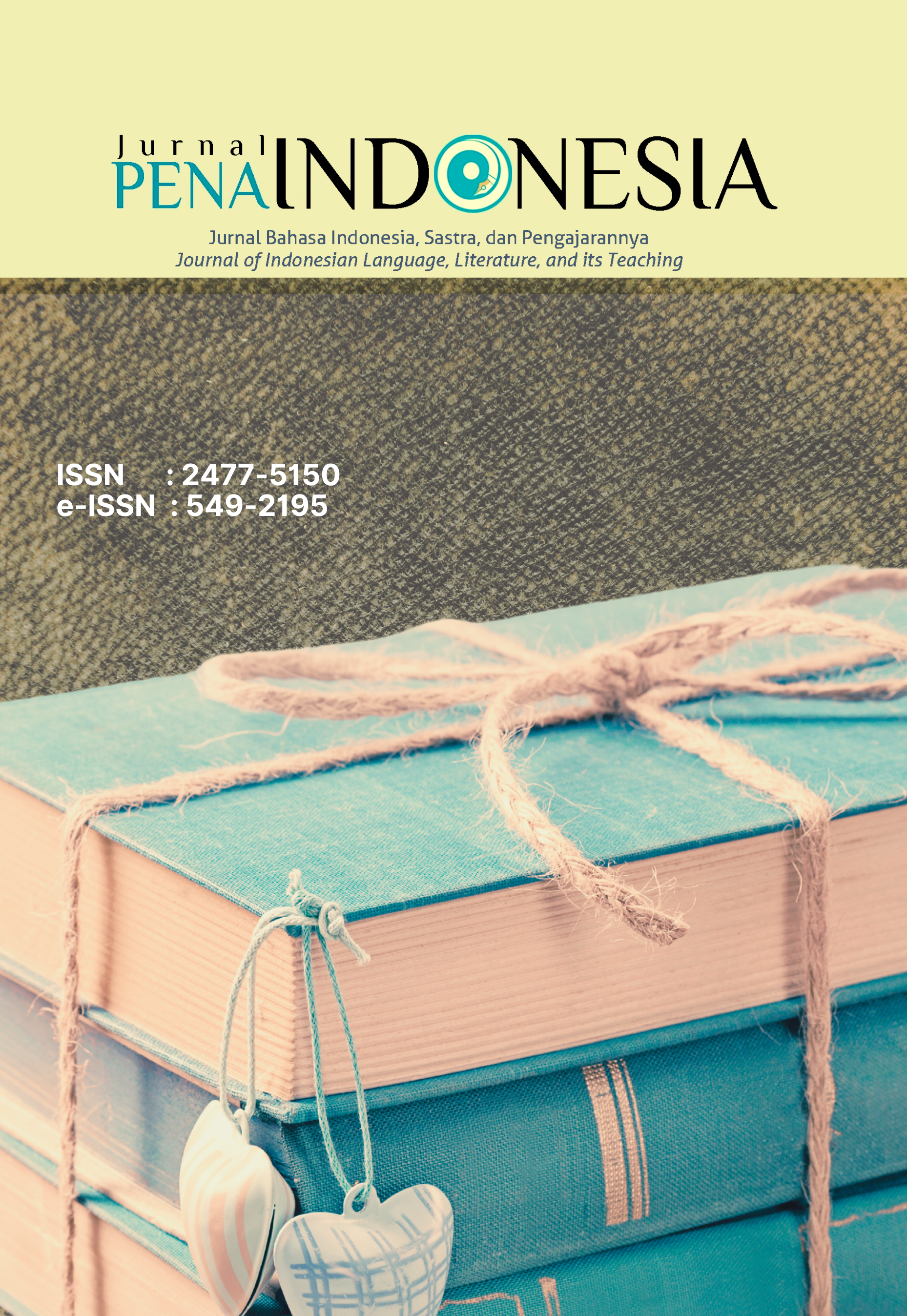Peran Pendidikan dan Ilmu Pengetahuan di Era Digital dalam Perspektif Berpikir Kritis Norman Fairclough
Main Article Content
Abstract
The research with the title “The Role of Education and Science in the Digital Age in the
perspective of Norman Fairclough's Critical Thinking Teaching” is motivated by the challenges
faced by the world of education and science in the increasingly complex digital era, which is not
only in the form of competition for express teaching models, but also human interest in false
truths and information. The critical thinking teaching method offered by Fairclough opens new
horizons for the world of education and science so as not to be trapped by offers of
sophistication and sophistication alone, because developments in the digital era are also
realized to have a negative impact on humans. This research is qualitative research using the
literature method. The formal object in this research is Norman Fairclough's critical thinking
teaching method, while the material object used in this research is the basic concept of
education and science. After conducting a search in this study, the results obtained are (1) the
formulation of critical thinking on the concepts of education and science (2) finding the role of
education and science of education in the digital era by involving five basic concepts initiated
by Fairclough, namely action, context, history, power and ideology.
Article Details
References
Bahm, J. Archie. 1980. What is “Science”?. Albuquerque: World Books.
Fairclough, N. 1995. Kesadaran Bahasa Kritis. Longman Singapore Publishers: Singapura ___________. 1955. Critical Discourse Analysis: The Critical Study of Language. Harlow: Pearson____________2001. Language and Power Second Edition. Pearson Education Limitid: London
Franz Magniz-Suseno. 1991. Etika Sosial. Gramedia: Jakarta
Hadi, Hardono. 1994. Epistemologi: Filsafat Pengetahuan. Pustaka Filsafat: Yogyakarta
Kaelan. 2005. Metode Penelitian Kualitatif bidang Filsafat. Paradigma: Yogyakarta
Koento Wibisono. Skema kelahiran dan Perkembangan Ilmu Pengetahuan– filsafat pengetahuan– filsafat ilmu (hand out) Koento Wibisono. 1992. Dinamika Ekonomi dan IPTEK
Poespoprodjo, W. 1997. Aktualitas Filsafat Ilmu Kemasakan– Ke Arah Praktek dan Pengelolaan Ilmu. Universitas Padjajaran
Salam, Burhanuddin. 1997. Logika Materiil Filsafat Pengetahuan. Rineka Ilmu Cipta: Jakarta
Saleh, firdaus. 2005. Teknologi tepat guna, masyarakat dan kebudayaan: suatu pendekatan yang diterapkan pada agribisnis usaha kecil menengah. Kreasi Wacana: Bandung
Santosa, Heru. 2000. Landasan etis bagi perkembangan teknologi (Studi Kebijakan pemakaian bahan bakar migas). PT. Tiara Wacana Yogya: Yogyakarta
Zen,M.T, (Editor). Teknologi 1982. Sains dan Hari Depan Manusia. Gramedia: Yogyakarta
Haryatmoko,. 2016. Critical Discourse Analysis (Analisis Wacana Kritis) Landasan Teori, Metodelogi dan Penerapan. Depok: Rajagrafindo Persada language PT. assessment literacy for in-service EFL teachers: The gaps. Studies in Educational Evaluation, 61(8), 112–122. https://doi.org/10.1016/j.stueduc.2 019.03.003 Literacy Skills and Teachers. (2011). Lu, D., & Xie, Y. N. (2024). The development of EFL preservice teachers’ critical thinking in teaching practicum: a case study. Professional Education, Development 00(00), in 1–16. https://doi.org/10.1080/19415257.2 024.2364322
Rabbianty, E. N., Raihany, A., Syafik, M., Muqoddas, N., Irwansyah, H., Rahmawati, F., & Febrianingrum, L. (2022). Pemahaman Mahasiswa Terhadap Literasi Lingkungan (Ekoliterasi): Potensi dan Tantangan Menuju Kampus Ramah Lingkungan. Andragogi: Jurnal Diklat Teknis Pendidikan Dan Keagamaan, 10(2), 163–176. https://doi.org/10.36052/andragogi. v10i2.302
Valtonen, T., Sointu, E., Kukkonen, J., Kontkanen, S., Lambert, M. C., & Mäkitalo-Siegl, K. (2017). TPACK updated to measure pre-service teachers’ twenty-first century skills. Australasian Journal of Educational Technology, 33(3), 15–31. https://doi.org/10.14742/ajet.3518

